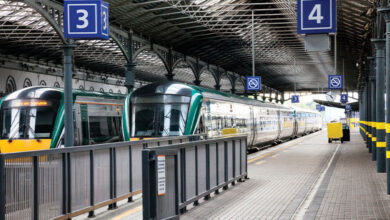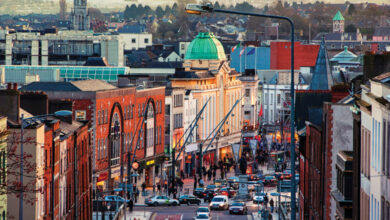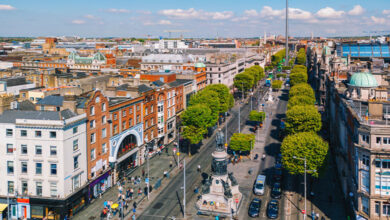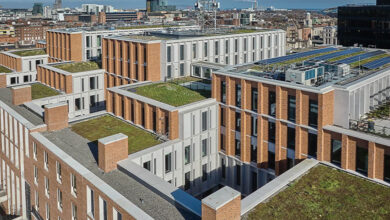Enhanced major capital investment scrutiny
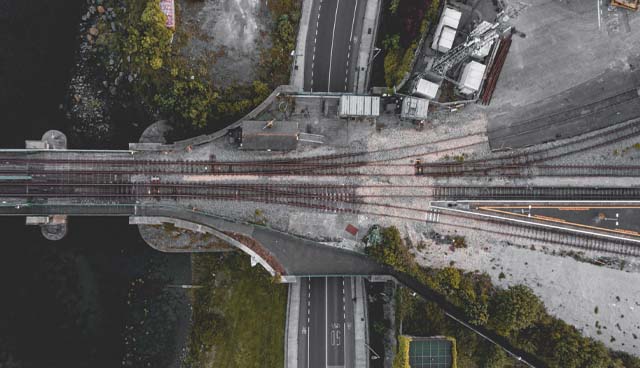
Major capital investment projects are now subject to a new External Assurance Process, undertaken by independent external experts, for review and scrutiny. At the same time, to support the Department of Public Expenditure and Reform (DPER) in undertaking this role, a new four-member Major Projects Advisory Group (MPAG) has been established.
Published in October 2021, the new €65 billion National Development Plan (NDP) committed to restructuring oversight and implementation of capital projects, as well as enhanced scrutiny of major public investment proposals.
As such, to strengthen the assurance process for major public investment, two new elements have been introduced:
- an External Assurance Process; and
- the establishment of a Major Projects Advisory Group.
External Assurances Process
Implemented by DPER, the External Assurances Process is intended to provide independent project scrutiny and key decision gates. Ultimately, the process is aimed at delivering better value for taxpayers’ money through independent expert insight into project risk and delivery feasibility, alongside robust costings, governance, and procurement.
While NDP investment projects are required to adhere to the Public Spending Code (PSC), which requires the employment of best practice at all stages of the expenditure lifecycle, DPER has indicated that the new process “goes one step further” in ensuring timely and on-budget project delivery.
Applicable to projects exceeding €100 million in cost, the mandatory External Assurances Process will consider cost, risk, and delivery during both the approval in principle and the pre-tender approval stages of the project lifecycle. Currently, there are at least 50 major public investment proposals in the Exchequer-funded component of the NDP. Any delays and cost overruns can have a negative knock-on effect on the entire capital programme.
“The implementation of the External Assurance Process and the establishment of Major Projects Advisory Group will help deliver on our commitment in the National Development Plan to reform the oversight and implementation of public infrastructure projects…”
— Minister for Public Expenditure and Reform Michael McGrath TD
Through better analysis of cost and risk in the initial stage, projects should receive more considered decisions and better outcomes. Likewise, external review can ensure better project and investment governance. As such, the External Assurance Process should furnish government with comprehensive information on cost, risk, governance, and delivery feasibility before a decision to proceed is taken.
MPAG
Currently, DPER undertakes the scrutiny and challenge role on major public investment proposals in advance of government consideration. This includes technical reviews of business cases, with regard to the PSC, as well as a focus on strategic alignment with core government policies and the quality and rigor of the economic appraisal.
Supported by a secretariat supplied by DPER’S National Investment Office (NIO), the newly established Major Projects Advisory Group (MPAG) will assist DPER in its project assurance role and advise the Minister for Public Expenditure and Reform. The MPAG will scrutinise project proposals and external reviews in advance of government consideration, supporting DPER’s role in in quality assuring the new External Assurances Process. It is expected that the MPAG will also advise on future reforms to the PSC.
Combined, these developments ensure that Ireland is aligned with international exemplars and fulfils a recommendation made by the IMF’s Public Investment Management Assessment of Ireland.
Announcing the introduction of the new process and the establishment of the MPAG, Minister for Public Expenditure and Reform Michael McGrath TD stated: “The implementation of the External Assurance Process and the establishment of Major Projects Advisory Group will help deliver on our commitment in the National Development Plan to reform the oversight and implementation of public infrastructure projects to achieve better value for money.”
Major Projects Advisory Group:
Michael Nolan
- Chair of the Major Projects Advisory Group.
- Previously appointed the first chief executive of Transport Infrastructure Ireland (TII) upon the merger of the National Roads Authority (NRA) and Railway Procurement Agency, retiring in 2020.
- Prior to this, held the head of major projects position in the NRA between 2007 and 2015.
- Chartered engineer and a fellow of Engineers Ireland.
- Currently chairs the Western Development Commission’s Project Working Group to develop a Rural Town Mobility Index and is an external member of the NTA’s BusConnects programme board.
Jerry Grant
- Background in engineering and law.
- Over 25 years of experience at director and executive advisor level in the utilities and construction sectors.
- Held roles as managing director, head of asset management, and specialist advisor with Irish Water between 2013 and late 2018.
- Currently chairs Dublin Port Company and holds active leadership roles in State sectors engaged in infrastructure services and investment.
Alison Hardiman
- A planning and development law expert with extensive experience in the development of strategic infrastructure projects in both the public and private sectors.
- Experience in Irish procurement law and processes as a tendering consultant.
- Previously worked as the in-housing planning lawyer of the Railway Procurement Agency, working on projects and proposals including Metro North PPP, Luas Cross City, and Citywest, between 2006 and 2011.
- Currently a PhD candidate, in association with EirGrid plc, undertaking research into the gaps in law and policy inhibiting delivery of regally required renewable energy infrastructure projects.
Barry O’Driscoll
- A chartered civil engineer with more than 25 years of experience in the national roads and public transport sectors.
- Extensive experience in senior positions in the planning, managing, and delivery of major public investment projects, including as director for WSP, director for Highways England’s Smart Motorway Programme, and project director for a series of major projects, most recently including the M4 smart motorway.
- Currently a member of the Independent Investment Programme Advisory Group (IIPAG) which provides assurance and advice to the Mayor of London for major Transport for London projects.

